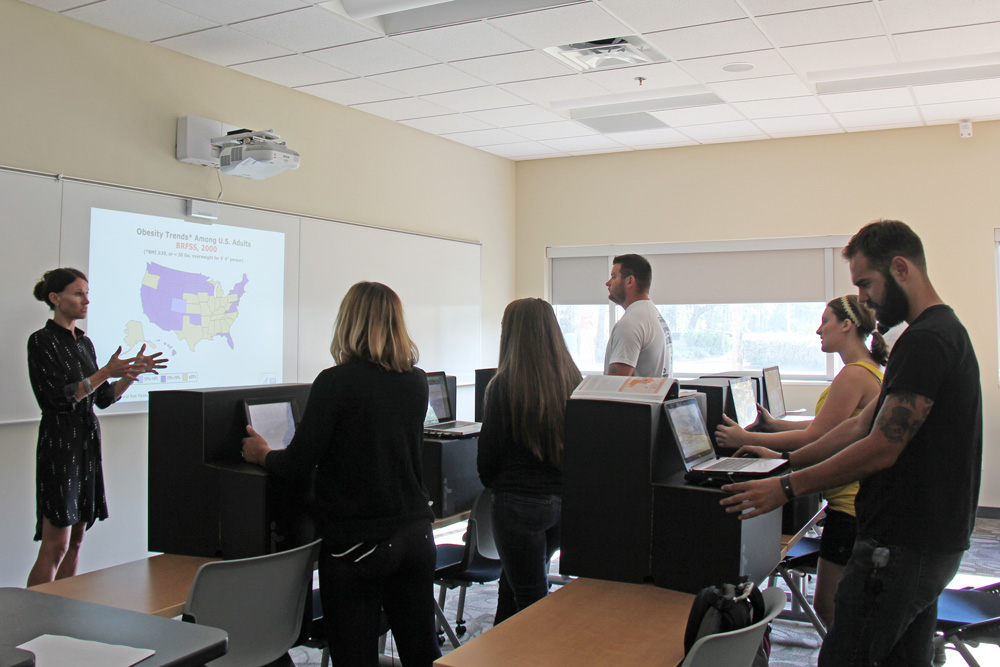Thinking On Your Feet: The Mental, Physical, and Behavioral Health Effects of Standing Desks Completed Project
Emerging research points to a correlation between sedentary behavior, or time spent sitting, and the risk of mortality and chronic disease. Standing desks may present a strategy to reduce sedentary time for college students who spend about 8 – 9 hours a day sitting. This project examined the impact standing desks have on sedentary behavior, mental and physical health-related outcomes, and academic and classroom behavioral outcomes in university students.

Students standing in class.
Collaboration
- Kinesiology, Nursing, Clinical Mental Health Counseling, and Education students devised a research study to assess the impact standing has on students’ health-- physical (Kinesiology), mental (Clinical Mental Health Counseling), neurocognitive (Nursing)--and academic performance and classroom behavior (Education).
- Once the study was designed and approved by the JU Institutional Review Board, a class was identified in which to conduct the intervention. A professor teaching two sections of the same course was solicited to participate. In the intervention classroom, students stood during the class period and in the control classroom, students sat.
- Education students developed an observational assessment to be used by student researchers who observed each class period to record student behavioral characteristics such as fidgeting and attention.
- Nursing, Clinical Mental Health Counseling, and Kinesiology students conducted physical and mental health assessments at the beginning and end of the semester.
- Data collected was analyzed to determine the impact standing had on the physical, mental, and cognitive functioning of the student subjects. In particular, the researchers analyzed the impact standing had on students receiving accommodations for Americans with Disabilities Act physical or mental disabilities.
Professors/Disciplines Involved
- Heather Hausenblas, PhD, Professor of Kinesiology
- Teresa MacGregor, PhD, Asst. Professor and Director, Graduate Nurse Program
- Gail Maetozo, PhD, Asst. Professor of Kinesiology
- Megan Phillips, PhD, Asst. Professor of Kinesiology
- Sharon Wilburn, PhD, Asst. Professor and Program Director, Clinical Mental Health Counseling
- Whitney George, PhD, Asst. Professor, Clinical Mental Health Counseling
- Colleen Wilson, PhD, Assoc. Professor of Education
Learn More
To learn more about the programs involved in this Collaborate JU project, visit:
